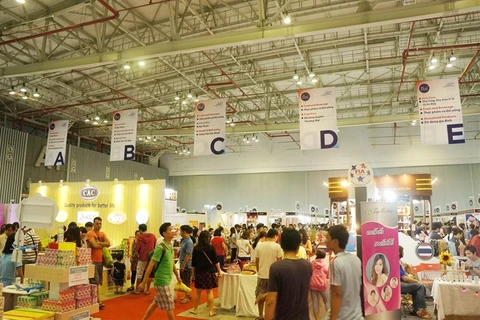Bangkok (VNA) – Thailand’s automobile exports are likely to drop for a second straight year, after the sector has reported negative growth rates for 12 consecutive months, says the Federation of Thai Industries.
In June, vehicle exports fell by 13 percent to 93,086 units, with decreases seen in all markets, while the total turnover also dropped 13.6 percent to 49.7 billion THB (1.4 billion USD).
During January-June, Thailand sold a total of 536,406 vehicles, earning 283.6 billion THB (8.4 billion USD), down 9.8 percent in volume and 11.1 percent in value.
Economists said that the economic situation in some regions has not performed well, which is putting pressure on Thailand’s auto exports.
The country expects to ship abroad nearly 1.1 million units this year, down from 1.2 million units as predicted earlier.
Car exports started to fall in 2016, when the figure fell by 1.4 percent to 1.18 million units. But 2016 export value still rose by 6.6 percent to 631.9 billion THB (18.8 billion USD), thanks to increased shipments of high-priced passenger pickup vehicles.
Meanwhile, domestic car sales rose by 5.7 percent to 69,794 units in June, thanks to better market sentiment spurred by several new car models.
From January to June, domestic sales totalled 409,976 vehicles, up 11.2 percent year-on-year.-VNA
In June, vehicle exports fell by 13 percent to 93,086 units, with decreases seen in all markets, while the total turnover also dropped 13.6 percent to 49.7 billion THB (1.4 billion USD).
During January-June, Thailand sold a total of 536,406 vehicles, earning 283.6 billion THB (8.4 billion USD), down 9.8 percent in volume and 11.1 percent in value.
Economists said that the economic situation in some regions has not performed well, which is putting pressure on Thailand’s auto exports.
The country expects to ship abroad nearly 1.1 million units this year, down from 1.2 million units as predicted earlier.
Car exports started to fall in 2016, when the figure fell by 1.4 percent to 1.18 million units. But 2016 export value still rose by 6.6 percent to 631.9 billion THB (18.8 billion USD), thanks to increased shipments of high-priced passenger pickup vehicles.
Meanwhile, domestic car sales rose by 5.7 percent to 69,794 units in June, thanks to better market sentiment spurred by several new car models.
From January to June, domestic sales totalled 409,976 vehicles, up 11.2 percent year-on-year.-VNA
VNA






















